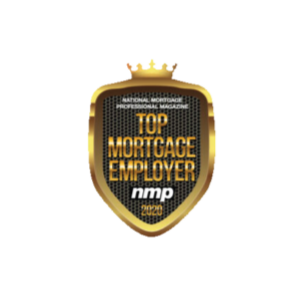Understanding 15 Year
Mortgage Rates
- October 20, 2022
Congratulations! You’re considering the purchase of a home, piece of real estate, or property, and now you’re wondering how to get started. Let’s take a moment to appreciate that you’ve reached this stage of your journey through life, and it’s a stage that should be celebrated and recognized.
You have no doubt already done a little internet research. Like most homebuyers, you probably have a few questions. What does a typical interest rate look like? What kind of credit score do I need to have? What’s the difference between a 15 year mortgage and a 30 year mortgage?
Not to worry. In this article, we will break down the answers to these FAQs and more so that you have all the information about home buying needed to go from being a homebuyer to a homeowner.
Our promise to you.
Delmar Mortgage is committed to doing Right By You. That means that any decision or recommendation we make is designed with your best interests in mind. We know that we would be absolutely nothing without our customers, and that’s why we look at our clients as family first and foremost. We’re not satisfied until you and your family are settled into your new home, with the knowledge that your payment plan is safe, sound, and secure. We want your mortgage to be the best mortgage for you specifically.
What are 15-Year
Mortgage Rates?
This is basically a fixed-rate mortgage (or a home loan) that is repaid over the course of a 15-year term. A term is understood as the number of years over which you repay a loan. One important consideration is that, because you are paying the mortgage loan off over a shorter period of time (a 15-year loan, compared to something like a 30-year loan), you’ll have a higher monthly mortgage payment than you would with a longer-term loan. One major benefit though is that you usually enjoy lower interest rates than you would with longer-term rates. Because you are paying your loan off sooner, you can expect to save upwards of thousands of dollars in interest payments.
Though they are two very different purchases, it might be simpler to think of this like an auto loan. If you were to finance a vehicle over a 72-month loan term, you could expect to pay a lot more in interest than you might with a 36-month shorter term. This comes at the cost though of having a higher monthly payment. Think of it this way; the shorter the loan term, the less you’ll pay in interest but your monthly payment will be higher.
Pros and Cons of a 15-Year
Mortgage Rate
Pros
Lower interest rates – Interest rates for 15-year mortgages usually tend to be lower than other types of mortgages.
You’ll complete your mortgage payments much sooner – You’ll be finished with your payments much sooner, giving you plenty of time to allocate all that extra money towards things like vacations, retirement, and even educational funds.
Fewer payments means less interest – Since you would only be making half as many payments (180 payments, compared to 360 payments), you will pay much less in total interest with each monthly payment.
You can start to build home equity faster – Because you have a shorter mortgage term, you will pay down the principal balance significantly faster than you would over a 30-year mortgage. This means that you build equity (the share that you own of your house) much faster than you would otherwise.
Cons
Expect to pay more every month – Because you are paying over 15 years instead of 30, you can expect your repayment amount to be much higher every month. This will mean significantly more of your budget will go towards your mortgage than you might think. A 30 year mortgage usually means significantly lower payment amounts per month, which is why many borrowers, particularly first-time home buyers, prefer a 30-year term.
This might eat into money you could put towards retirement – Retirement is another example of an investment that you want to contribute to early and often, allowing compounding interest to build over time. 15-year mortgages often leave people with significantly less to contribute to 401(k) retirement plans, IRAs/Roth IRAs, etc. When choosing your primary residence, we typically recommend that a single family allocate enough money each month to both pay into their mortgage and contribute to their retirement.
You will likely qualify for a smaller total mortgage amount – Most lenders prioritize reducing risk wherever they can, and understand that a 15-year term can create significant strain on a monthly budget. As a result, while completing your mortgage application you won’t qualify for a mortgage amount like you might with a 30-year term, which might mean less money to work with towards your dream home.
Should I consider a 15-year Mortgage, or a 30-year Mortgage?
This is largely dependent on several factors, which might include (but are not limited to): your initial down payment, your total loan amount, what your APR (annual percentage rate) looks like, and the total cost(s) of your home purchase. If you want to pay less interest over the life of the loan, you may want to consider a shorter mortgage. However, all of this is largely contingent upon your individual financial situation, and your payment amount is going to be specific to you.
Many people have monthly bills that come out of their pay checks. Some of these bills go towards things like gas, heating and cooling, electricity/utilities, internet or cable, groceries, and more. Other bills go towards loan payments for things like student loans, rent, car payments, credit card bills, and more. After all of these payments, some might be left with a lot less expendable income in their monthly budget than they might think.
However, every financial situation is different. For example, some might not carry any credit card debt, or not have a car payment. Additionally, others might have a lower total debt-to-income ratio (also known as DTI, this is the amount of debt you owe to lenders compared to how much you bring in from salary or other sources of income). In any case, some find that they have a little more money to put towards their mortgage, allowing them to pay back their loan sooner.
Remember, Delmar Mortgage is committed to doing Right By You, and we’ll evaluate your financial situation top to bottom to help you determine what type of mortgage is best for where you are in life.
When to consider which
loan type is best for you.
While it is impossible to predict the future, having these kinds of conversations with your partner or spouse before starting the mortgage application process can be important for ensuring that you are on the same page. Consider things like your current employers; one factor lenders consider is where the prospective borrowers are employed. To a mortgage lender, working at a startup might seem more high-risk than working at a government-backed institution, for example.
You’ll also want to consider what your budget looks like both during the time of your purchase and what your potential earnings might look like a few years down the road. You’ll need to budget for origination fees during the application process, both forecasted and unexpected closing costs, and (if needed) mortgage insurance. You’ll want to consider how much you have budgeted each month for housing, compared to how much money you need to allocate towards other expenses.
Remember, life happens, even when you try your best to plan for it. Unexpected costs like auto repairs or maintenance, home repairs, childcare expenses, medical expenses, and more can all sneak up. If you don’t have some extra money set aside for these emergency expenses, these can put significant strain on your budget. Part of the problem with a 15-year mortgage is that it really can eat up a significant amount of your monthly expendable income. While there are plenty of benefits, you’ll want to speak with your partner about contingency plans for when these unexpected expenses arise.
Will you be refinancing after a few years? You may want to consider if and when you want to refinance, and what refinance rates might be available to you. One of the initial benefits is that you can expect to save a little money each month on your monthly payment, however it usually means extending the life of the loan. This usually translates to paying more in interest over time.
None of this is to dissuade you from selecting a 15-year term or similar loan options; far from it. If you refer back to the pros we mentioned in this article, there are a great many benefits to a shorter term, not the least of which being that you’ll be free from debt much sooner! We only want to provide all the information that we can so that you can make the choice that’s best for you.
Who determines
15-year mortgage rates?
While the specific number changes over time, it’s good to use current projections to at least give you a base idea of what your mortgage interest might look like. To combat rising inflation rates, the Federal Reserve increased interest rates in the summer of 2022. This is important to understand because the Federal Reserve determines things like borrowing costs for some loans throughout the United States by adjusting the federal funds rate. Throughout much of the Coronavirus (COVID-19), the Federal Reserve set rates to near zero. This is, in part, why so many rushed to buy homes and take out mortgages from 2020 through present day. The idea being it kept the housing market afloat, while much of the economy stalled. In part, this has contributed to some of the shortages of houses we see today. The rate that the Federal Reserve set determines in part how much a bank might pay another in interest to utilize money kept in the reserves at the Fed overnight. The Fed however does not set mortgage rates per-say.
Mortgages and mortgage rates tend to follow the 10-year Treasury rate. This is because a change to federal fund rates might move (or not) on 10-year Treasury bonds. These are bonds issued by the government and mature over the course of a decade. The Federal Reserve on the other hand can have an influence on mortgage rates by determining monetary policies. An example of this might be when the Fed purchases or sells debt securities. Throughout COVID-19 the Treasury market was heavily disrupted. As a consequence, it was more expensive to borrow money than the Fed would have liked. As a result, the Fed purchased billions of dollars’ worth of Treasuries, and Mortgage-backed securities (known as MBS). Doing this improved credit flow, which drove most mortgage rates to their lowest rates in decades.
Some factors that can
influence mortgage rates:
Unlike adjustable-rate mortgages, fixed rate-mortgages are determined through 10-year Treasury rates. As a result, whenever the 10-year rate increases, 30-year fixed-rate mortgages usually go up as well. There are of course other factors that can have an influence, a major factor being supply and demand for homes. If a mortgage lender has too many interested parties, they might increase their rates to lower demand, and vice versa. Another factor is price inflation; when inflation is low, rates are often lowered, and vice versa.
Many lenders offer a mortgage calculator that allow you to enter information like your type of purchase (purchase or refinance), zip code, the purchase price, your down payment amount, forecasted interest rate, loan term, and credit score to determine what today’s 15-year rate loan might look like. The actual amount will be determined by you and your lender, but these tools can be useful to give you a ballpark idea of what your amounts might be.
Who should you
finance through?
Whoever you decide to finance through, try to look for a few indicators that will ensure you are working with a trusted institution. One great indicator is that your bank is a Member FDIC institution (this means that the financial institution is compliant with the Federal Deposit Insurance Corporation, which is a federal agency that helps to protect clients of insured banks from losing their deposits if the insured bank they use fails). You should also check to see if your bank has a trackable NMLS (Nationwide Multistate Licensing System) identification number.
Of course, Delmar Mortgage has more than just a little experience earning the trust of our customers. For decades we’ve helped our clients (who we see as family) finance the home of their dreams, always with the knowledge that the recommendations we make and loans we propose are in their best interests. There are a lot of loan options out there, and it can all be a bit confusing. Whether you want to look into a VA loan, an FHA loan, or something else entirely, we’re here to support you however we can.
Try to take a breather; we know this can all be a lot to process. Just know that Delmar Mortgage is Right By You, and we will never suggest any course of action we don’t think you can manage. We don’t look at success as you finally closing on your new home; we view it as an established and trusted relationship that you can rely on well after the final closing. Whether you pursue a 15-year mortgage, a 30-year mortgage, or refinance down the road, we’ll be there to support you and your family throughout.
Are you interested in discussing some of these financing options? Be sure to contact us today and one of our trusted team members will get in touch with you shortly to help you start determining the best course of action for you!
- Home Loan Options
- Oct 20, 2022



















